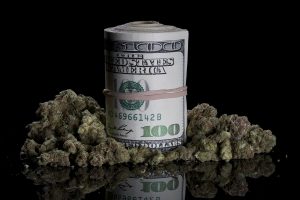 California has lately been on its game with progressive changes to its cannabis laws. Last week, AB 133 passed, making needed technical fixes to the Medicinal and Adult Use Cannabis Regulation and Safety Act (“MAUCRSA” a/k/a SB 94). And then last Thursday, California’s Bureau of Cannabis Control publicly revealed details behind its temporary licensing program (see here for the Bureau’s brochure on that process). And now the City of Los Angeles just released its 42-page revised draft regulations under Proposition M and they contain some interesting, comprehensive, and important changes from the original draft (if anyone forgets what Prop. M is, go here).
California has lately been on its game with progressive changes to its cannabis laws. Last week, AB 133 passed, making needed technical fixes to the Medicinal and Adult Use Cannabis Regulation and Safety Act (“MAUCRSA” a/k/a SB 94). And then last Thursday, California’s Bureau of Cannabis Control publicly revealed details behind its temporary licensing program (see here for the Bureau’s brochure on that process). And now the City of Los Angeles just released its 42-page revised draft regulations under Proposition M and they contain some interesting, comprehensive, and important changes from the original draft (if anyone forgets what Prop. M is, go here).
Here are some of the highlights from the revised ordinance if you’re looking to have a cannabis business in Los Angeles:
- Remember the controversial certificates of approval? Those have been eliminated in favor of a straight licensing program that includes provisional and permanent City licenses. This new licensing program will give applicants greater and better-protected rights to operate within the City’s borders. Upon initial approval, you will receive a provisional license and once you get your state license to operate, the City will issue you a permanent City of Los Angeles license.
- Under the original Prop. M draft regulations, certificates of approval were set to issue in four waves in this particular order: Prop. D-compliant existing medical marijuana dispensaries (EMMDs), non-retail registrants (i.e., growers and manufacturers), the social equity program, and then the general public. Formerly, non-retail registrants were only eligible for a certificate of approval in that second wave if they could show they were operating in the City before January 1, 2016. That’s all changed as there is no longer any non-retail registry priority.
- The City of Los Angeles Department of Cannabis Regulation will still give first priority in processing EMMD applications that “demonstrate to the Department the EMMD has operated in compliance with the provisions of the limited immunity and tax provisions of Proposition D.” Note that in the previous draft rules, the City required “substantial compliance” with Prop. D. Once applications become available, these EMMD applicants will have only 60 days to get their applications in and, after that, that application window closes indefinitely. And, just like in the original rules for EMMDs, “any mitigating circumstances due to gaps in operations, location change or involuntary closure, ownership, tax payments, etc. must be described in detail for the Department to consider eligibility.”
- EMMDs will only be allowed to apply for Retailer Commercial Cannabis Activity (including delivery), which may include on-site cultivation as allowable under Prop. D. On-site cultivation in this scenario may not exceed the size of the EMMD’s existing canopy or square footage of building space as documented by a lease or Certificate of Occupancy prior to January 1, 2017. A maximum of three Licenses per EMMD with a valid Business Tax Registration Certificate will be allowed — the example the City gives is: One Type 10 (retailer), One Type 10 (retailer with delivery) AND one Type 2A OR Type 3A (on-site cultivation if applicable).
- One of the biggest boons for EMMDs (and for any cannabis applicant in the city of L.A.) is that “changes in ownership status from non-profit status to for-profit status are allowable.” Now is the time for all L.A. operators to think about getting away from their precarious non-profit mutual benefit corporations and other bizarre corporate setups and to prepare to convert to a legal, for-profit business entity in order to apply for a license with the City in line with the California Corporations Code.
-
The City of Los Angeles is still working on its social equity program. It is expected that will be finalized and made part of the Prop. M rules sometime in October.
-
The general public will be allowed to apply for licenses at the same time as the social equity program opens up. The most positive change for the general public is that they are no longer limited to the number of licenses that will issue in the social equity program. Without a doubt, the general public now has a much better chance to participate in L.A.’s cannabis scene.
- Here’s the deal on license caps in the City: all retailers and microbusinesses in the City will be limited to three licenses at the most. There are no license caps for cultivators so long as a given business does not have more than 1.5 acres of plant canopy within the City. Type 7 volatile manufacturing is now allowed (previously it wasn’t), and there are no set caps on manufacturing licenses within the City. There also is no licensing cap for distributors.
- As part of the application process, applicants must provide a site diagram to the City. The premises must be a contiguous area and may only be occupied by one business. However, multiple businesses may be located on the same property (as established by an assessor’s parcel number) if each premises has “a unique entrance and immovable physical barriers between unique premises.” Our cannabis lawyers have dealt with these sorts of restrictions in other states and they are usually not a problem and should be dealt with in your lease.
-
Applicants must provide a detailed description and plan for hiring “local residents, including making an ongoing good-faith effort to ensure that at least 30 percent of hours of their respective workforce be performed by residents of the City of Los Angeles, of which at least 10 percent of their respective workforce shall be performed by Transitional Workers whose primary place of residence is within a 3-mile radius of the proposed Business.”
-
An applicant with 10 or more full-time equivalent employees must enter into a labor peace agreement.
-
On the M&A front, neither the City licenses nor the businesses are transferable once a provisional or permanent license issues, but you can still apply to the City to change the business structure, which does allow for you to sell the business so long as the City of Los Angeles approves the sale. See here for more on buying cannabis businesses in Los Angeles.
-
No licensed retailer of alcoholic beverages or tobacco products can apply for a City of Los Angeles cannabis license.
-
Foreign companies from outside the U.S. are not allowed in the City, but the City specifically states that this prohibition “does not preclude out-of-state investment in a Business proposing to conduct Commercial Cannabis Activity.” If you are thinking about investing in a California cannabis businesses, you should be sure to join us at our September 28th California Cannabis Investment Forum in San Francisco. But do NOT wait, because we must limit the number attendees to 250 and we are getting dangerously close to that already.
-
The City is still discussing what to do about zoning for cannabis businesses and changes to that proposed ordinance are sure to affect your ability to secure an eligible property.All in all, Los Angeles is finally starting to embrace comprehensive cannabis control and oversight with a regulatory system that should catapult it into its rightful place as a cannabis powerhouse with serious operators.

Why Better Billing Statements Can Improve Your Firm’s Finances—And Your Client Relationships
Outdated billing is costing law firms money. Discover how clear, modern billing practices boost profits, trust, and cash flow in 2025.
 Hilary Bricken is an attorney at Harris Bricken in Los Angeles, and she chairs the firm’s Canna Law Group. Her practice consists of representing marijuana businesses of all sizes in multiple states on matters relating to licensing, corporate formation and contracts, commercial litigation, and intellectual property. Named one of the 100 most influential people in the cannabis industry in 2014, Hilary is also lead editor of the Canna Law Blog. You can reach her by email at [email protected].
Hilary Bricken is an attorney at Harris Bricken in Los Angeles, and she chairs the firm’s Canna Law Group. Her practice consists of representing marijuana businesses of all sizes in multiple states on matters relating to licensing, corporate formation and contracts, commercial litigation, and intellectual property. Named one of the 100 most influential people in the cannabis industry in 2014, Hilary is also lead editor of the Canna Law Blog. You can reach her by email at [email protected].